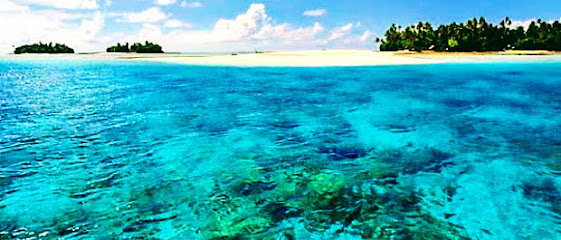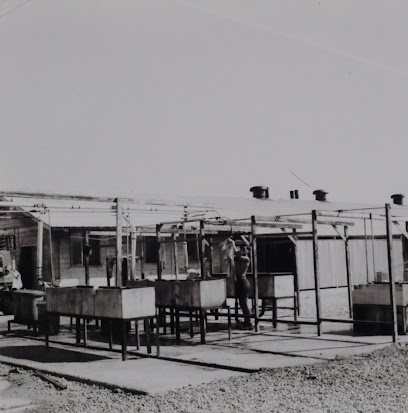
Kiritimati Island: The Jewel of the Pacific
Kiritimati Island, also known as Christmas Island, is a gem in the heart of the Pacific Ocean. This remote island, part of the Republic of Kiribati, boasts the largest coral atoll by land area in the world. With its pristine lagoons, diverse marine life, and untouched beaches, Kiritimati is a paradise for nature lovers and adventure seekers. The island is renowned for its incredible birdwatching opportunities. It is home to millions of seabirds, making it one of the most important bird areas in the Pacific. Visitors can witness the spectacular sight of birds nesting and flying across the azure skies. The island’s unique ecosystem also supports a rich variety of fish species, making it a top destination for fishing enthusiasts. For those interested in history, Kiritimati Island offers a glimpse into the past with its World War II relics. The island was used as a base by Allied forces, and remnants of this era can still be found scattered across the landscape. Additionally, the island holds cultural significance for the local I-Kiribati people, and visitors can experience their traditional way of life and warm hospitality. Kiritimati Island is also famous for its stunning underwater world. The coral reefs surrounding the island provide excellent snorkeling and diving opportunities. Divers can explore the vibrant coral gardens, swim with colorful fish, and even encounter dolphins and turtles. With its crystal-clear waters and abundant marine life, Kiritimati Island is truly a diver's dream. Whether you are looking to relax on the beach, explore the natural wonders, or immerse yourself in local culture, Kiritimati Island offers a unique and unforgettable experience.
Local tips in Kiritimati (Christmas) Island
- Bring plenty of sunscreen and insect repellent, as the island's tropical climate can be intense.
- Cash is essential. There are no ATMs on Kiritimati Island, so ensure you have enough cash for your stay.
- Plan your visit during the dry season from March to October for the best weather conditions.
- Respect local customs and traditions. The I-Kiribati people are very welcoming, and appreciating their culture will enhance your experience.
- Book accommodations and tours in advance, as options on the island are limited and can fill up quickly.
Kiritimati Island: The Jewel of the Pacific
Kiritimati Island, also known as Christmas Island, is a gem in the heart of the Pacific Ocean. This remote island, part of the Republic of Kiribati, boasts the largest coral atoll by land area in the world. With its pristine lagoons, diverse marine life, and untouched beaches, Kiritimati is a paradise for nature lovers and adventure seekers. The island is renowned for its incredible birdwatching opportunities. It is home to millions of seabirds, making it one of the most important bird areas in the Pacific. Visitors can witness the spectacular sight of birds nesting and flying across the azure skies. The island’s unique ecosystem also supports a rich variety of fish species, making it a top destination for fishing enthusiasts. For those interested in history, Kiritimati Island offers a glimpse into the past with its World War II relics. The island was used as a base by Allied forces, and remnants of this era can still be found scattered across the landscape. Additionally, the island holds cultural significance for the local I-Kiribati people, and visitors can experience their traditional way of life and warm hospitality. Kiritimati Island is also famous for its stunning underwater world. The coral reefs surrounding the island provide excellent snorkeling and diving opportunities. Divers can explore the vibrant coral gardens, swim with colorful fish, and even encounter dolphins and turtles. With its crystal-clear waters and abundant marine life, Kiritimati Island is truly a diver's dream. Whether you are looking to relax on the beach, explore the natural wonders, or immerse yourself in local culture, Kiritimati Island offers a unique and unforgettable experience.
When is the best time to go to Kiritimati (Christmas) Island?
Iconic landmarks you can’t miss
Unmissable attractions to see
Torben's Beach
Experience the serene beauty of Torben's Beach in Paris, where relaxation meets stunning coastal views and unforgettable sunsets.
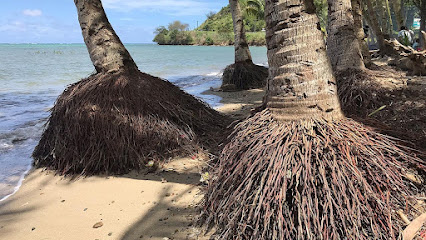
Rainbow Park
Explore the natural beauty of Rainbow Park in Tabwakea, a serene oasis perfect for relaxation, picnics, and enjoying the tranquility of nature.
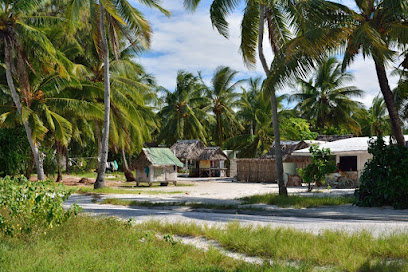
Link Services
Explore the serene beauty of Kiritimai Island, a tranquil paradise nestled in Kiritimati atoll, perfect for snorkeling, diving, and cultural experiences.

Kiritimati Park
Explore Kiritimati Park in London – a lush green haven perfect for relaxation, picnics, and enjoying nature's beauty in the heart of the city.

Essential places to dine
Captain Cook Hotel
Experience tranquility at Captain Cook Hotel in Banana, Kiribati - your gateway to island adventures and cultural immersion.
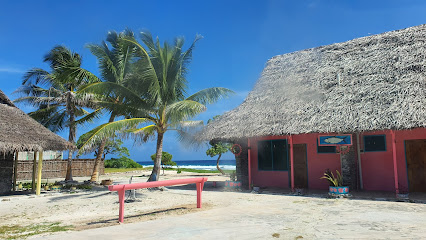
Sunset Horizon Fishing Lodge
Discover tranquility at Sunset Horizon Fishing Lodge - your ultimate escape in Kiribati with breathtaking views and unparalleled fishing adventures.

Bistro de Myrko
Discover exquisite local flavors at Bistro de Myrko - where culinary tradition meets modern dining.
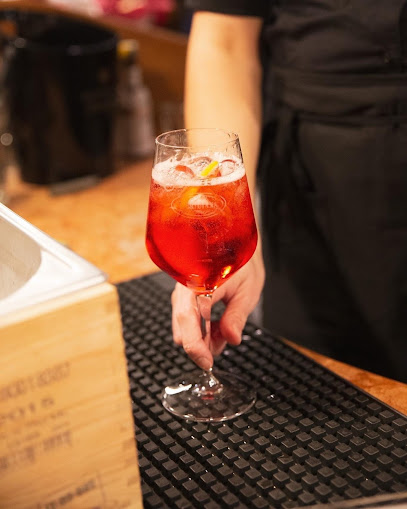
Lagoon View Resort
Experience ultimate relaxation at Lagoon View Resort in Kiritimati—where stunning lagoon views meet luxury accommodations.

Sand Beach Restaurant
Discover exquisite flavors and breathtaking views at Sand Beach Restaurant in Banana – where every meal is a seaside celebration.
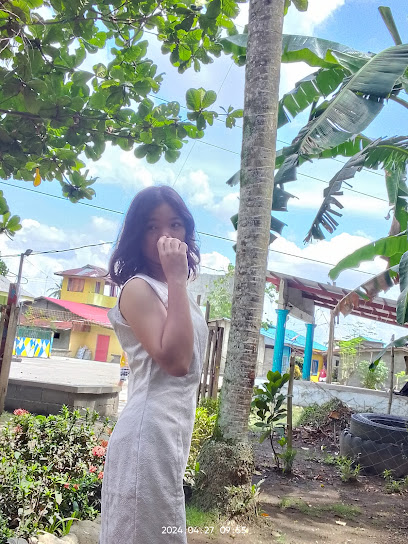
Ikari House
Discover comfort at Ikari House in London - where relaxation meets adventure amidst stunning scenery and exciting activities.

Kiritimati ben
Discover Kiritimati Bakery: A delightful stop for fresh baked goods and local flavors amidst stunning island scenery.
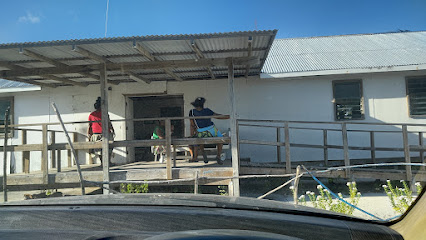
Polani Maeka Ngkare
Experience authentic Chinese flavors at Polani Maeka Ngkare in Poland—where every dish tells a story.

Mum's Kitchen
Experience authentic home cooking at Mum's Kitchen in London – where every meal is made with love and nostalgia.
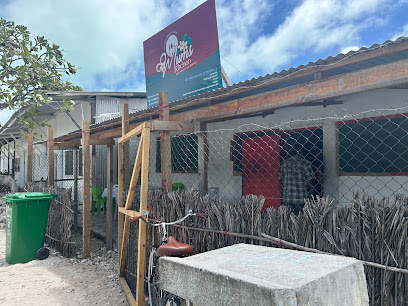
Christmas Island Lodge
Discover tranquility at Christmas Island Lodge - your gateway to stunning beaches and vibrant marine life on Kiritimati.
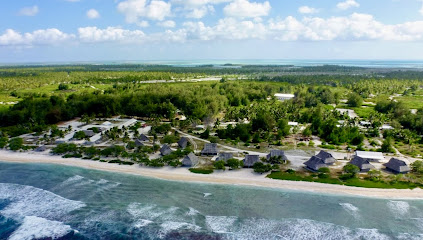
Markets, malls and hidden boutiques
Nina's Garment
Explore Nina's Garment in London, where fashion meets style in a chic dress store offering unique attire for every occasion.

Council Retail Shops
Explore the vibrant Council Retail Shops in London, where shopping meets local culture and unique experiences await every visitor.

JMB Store
Explore Kiritimati's local flavors and vibrant community at JMB Store, your go-to grocery destination on the island.

Set Vsat internet Shopping
Discover the charm of Kiribati at Set Vsat Internet Shopping, where home goods and local culture blend seamlessly for an unforgettable shopping experience.

Kiritimati ben
Experience the delightful flavors of Kiritimati at Kiritimati Ben, where fresh pastries meet local culinary traditions.
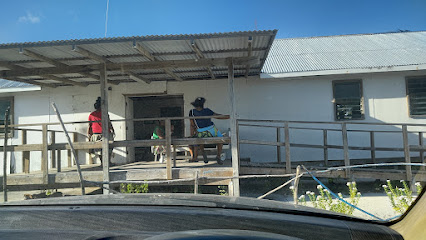
Buokam Store
Discover the charm of Kiritimati at Buokam Store, your destination for unique souvenirs and local treasures.

Rickronk Enterprises
Discover Rickronk Enterprises in Kiritimati, where cutting-edge electronics meet unique fashion and essential office supplies.

Itin Auto Parts
Explore Kiritimati with confidence, thanks to Itin Auto Parts - your trusted source for all automotive needs on the island.

Big Ben’s Sausage
Discover the authentic taste of London at Big Ben’s Sausage - a butcher shop specializing in artisanal sausages made from local ingredients.

Betty Trading
Explore the charm of Betty Trading in London, a general store offering local products and a taste of the everyday life.
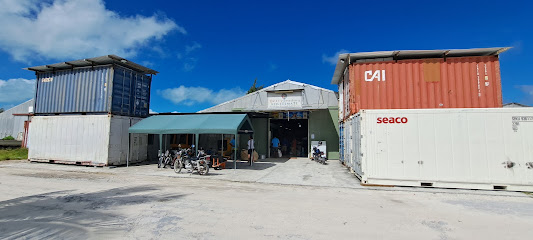
Onetwothreehours
Explore Onetwothreehours, a unique textile mill in London, offering an immersive experience into the art and history of textile production.

Reef Colors Supplier
Explore the colorful aquatic world at Reef Colors Supplier, London's premier destination for pond fish and aquatic plants.
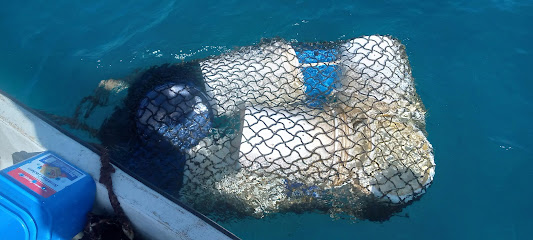
Map Trading
Discover the art of navigation at Map Trading in London, where maps come alive and adventures begin.

Wishing Star
Experience the vibrant local flavors at Wishing Star supermarket in Tabwakea, where you can find fresh produce and unique Kiribati delicacies.

Christmas Island Lodge
Discover the serene beauty and adventure of Kiritimati at Christmas Island Lodge, your perfect island getaway in the Pacific.
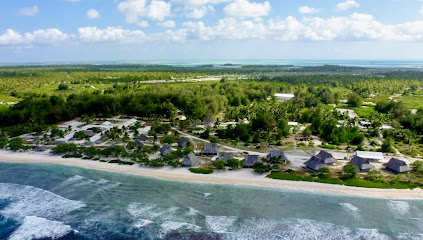
Essential bars & hidden hideouts
Kiritimati
Discover the untouched beauty of Kiritimati, a tropical paradise known for its spectacular coral reefs and rich cultural experiences in the heart of the Pacific.
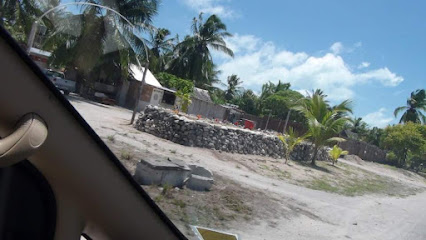
Captain Cook Hotel
Experience the tranquil charm of Captain Cook Hotel in Banana, Kiribati, your gateway to local culture and stunning natural beauty.
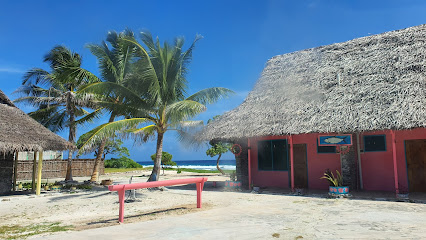
Sunset Horizon Fishing Lodge
Discover the tranquil beauty of Sunset Horizon Fishing Lodge, where adventure meets relaxation in the heart of London's stunning landscapes.

Bistro de Myrko
Discover the delightful culinary offerings of Bistro de Myrko, where local flavors meet international cuisine in a charming, cozy setting.
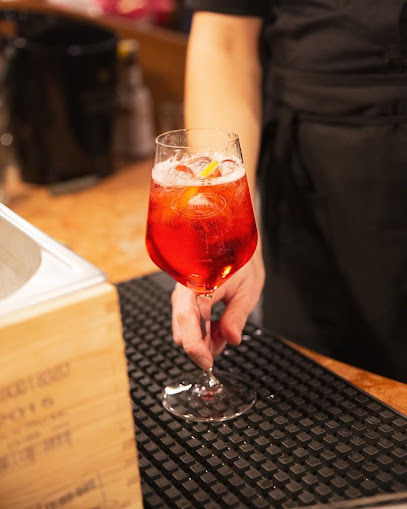
Sand Beach Restaurant
Experience the best of island cuisine at Sand Beach Restaurant, where fresh seafood meets stunning ocean views in banana.
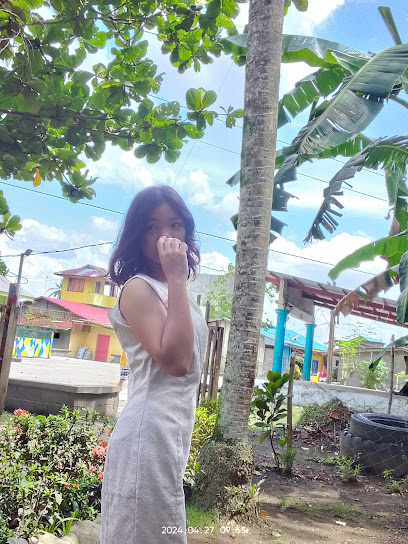
Lagoon View Resort
Discover the perfect blend of luxury and nature at Lagoon View Resort, your ideal getaway in London.

Ikari House
Ikari House offers a unique blend of comfort and local charm, ideal for tourists seeking a memorable lodging experience in London.

The Villages Hotel (FBRCV)
Discover the beauty of Kiritimati at The Villages Hotel, where stunning views and local culture await in a tropical paradise.
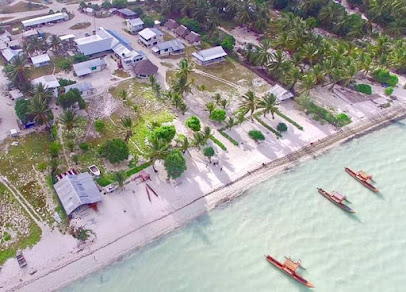
Kiritimati ben
Indulge in the flavors of Kiritimati at Kiritimati Bakery, where every bite is a taste of island paradise.
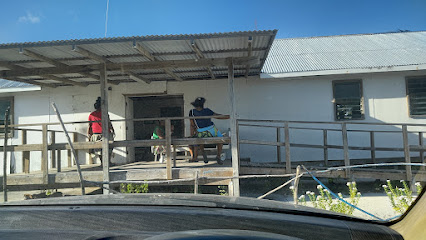
Mum's Kitchen
Experience the warmth of home-cooked meals at Mum's Kitchen in London, where comfort food meets a cozy atmosphere.
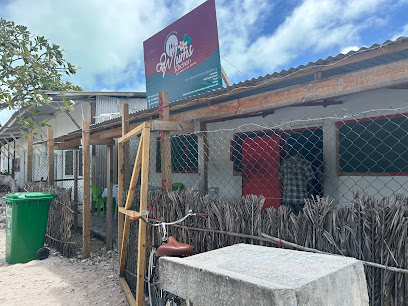
Polani Maeka Ngkare
Discover the rich flavors of authentic Chinese cuisine at Polani Maeka Ngkare, a cozy restaurant perfect for food lovers and travelers alike.

Kiritimati Yacht Klub
Discover the beauty of Kiritimati at the Yacht Klub, where stunning ocean views and a vibrant community await every traveler.
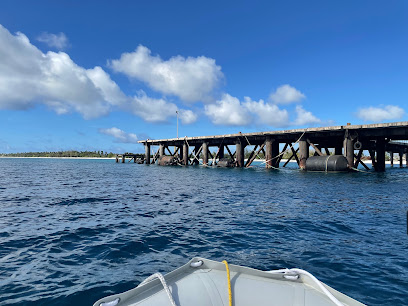
Inn Pacific
Experience the serenity and adventure at Inn Pacific, your perfect motel getaway on Kiritimati, Christmas Island.
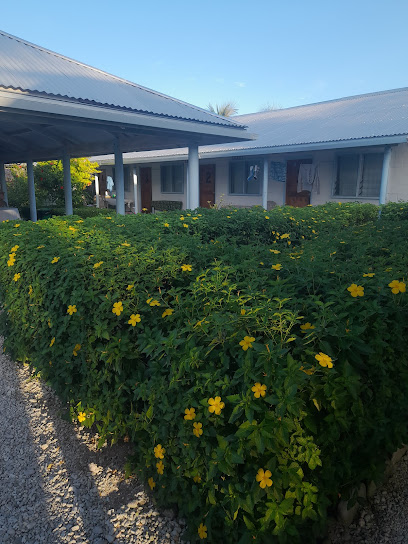
Christmas Island Lodge
Experience the serene beauty and adventure of Christmas Island Lodge, a tranquil retreat on Kiritimati Island offering natural wonders and cozy accommodations.
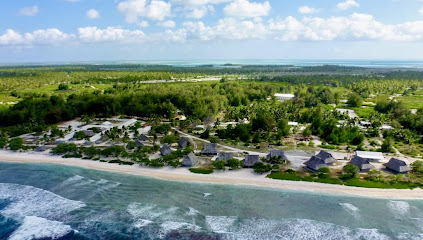
Local Phrases about Kiritimati (Christmas) Island
-
- HelloMauri
[maw-ree] - GoodbyeTia bo
[tee-ah boh] - YesIo
[ee-oh] - NoAe
[ah-eh] - Please/You're welcomeKo rabwa
[koh rahb-wah] - Thank youKam bati
[kahm bah-tee] - Excuse me/SorryKo raki
[koh rah-kee] - How are you?Kam na mai?
[kahm nah mah-ee?] - Fine. And you?Kam nai. E kam?
[kahm nah-ee. eh kam?] - Do you speak English?Ko kai iai i te te ingarani?
[koh kai ee-eye ee teh teh een-gah-rahn-ee?] - I don't understandKo kai te aro?
[koh kai teh ah-roh?]
- HelloMauri
-
- I'd like to see the menu, pleaseKo kai te tia ma te menu, ko rabwa
[koh kai teh tee-ah mah teh meh-noo, koh rahb-wah] - I don't eat meatKo kai te tia kaa te mea
[koh kai teh tee-ah kah teh meh-ah] - Cheers!Ko bwa
[koh bwah] - I would like to pay, pleaseKo kai te tia moni, ko rabwa
[koh kai teh tee-ah moh-nee, koh rahb-wah]
- I'd like to see the menu, pleaseKo kai te tia ma te menu, ko rabwa
-
- Help!Mana
[mah-nah] - Go away!Ko ka iai
[koh kah ee-eye] - Call the Police!Ko kai iai i te turinga ma te turinga
[koh kai ee-eye ee teh too-reen-gah mah teh too-reen-gah] - Call a doctor!Ko kai iai i te riki
[koh kai ee-eye ee teh ree-kee] - I'm lostKo kai te aro
[koh kai teh ah-roh] - I'm illKo kai te reine
[koh kai teh ray-nee]
- Help!Mana
-
- I'd like to buy...Ko kai te tia te...
[koh kai teh tee-ah teh...] - I'm just lookingKo kai te tia te tia
[koh kai teh tee-ah teh tee-ah] - How much is it?Ko aea te moni?
[koh ah-eh-ah teh moh-nee?] - That's too expensiveTe moni te aea
[teh moh-nee teh ah-eh-ah] - Can you lower the price?Ko kai te aea te moni?
[koh kai teh ah-eh-ah teh moh-nee?]
- I'd like to buy...Ko kai te tia te...
-
- What time is it?Ko aea te taai?
[koh ah-eh-ah teh tah-ah-ee?] - It's one o'clockTe taai te tai
[teh tah-ah-ee teh tah-ee] - Half past (10)Te tai i te aea
[teh tah-ee ee teh ah-eh-ah] - MorningTe rai
[teh rye] - AfternoonTe ao
[teh ah-oh] - EveningTe po
[teh poh] - YesterdayI te rai n te aea
[ee teh rye en teh ah-eh-ah] - TodayI te ao
[ee teh ah-oh] - TomorrowI te po
[ee teh poh] - 1Tai
[tah-ee] - 2Rua
[roo-ah] - 3Toru
[toh-roo] - 4Aa
[ah-ah] - 5Rima
[ree-mah] - 6Ono
[oh-noh] - 7Fitu
[fee-too] - 8Varu
[vah-roo] - 9Iva
[ee-vah] - 10Te aea
[teh ah-eh-ah]
- What time is it?Ko aea te taai?
-
- Where's a/the...?Aea te...
[ah-eh-ah teh...] - What's the address?Aea te tuatino?
[ah-eh-ah teh too-ah-tee-noh?] - Can you show me (on the map)?Ko kai iai i te tia (i te mapu)?
[koh kai ee-eye ee teh tee-ah (ee teh mah-poo)?] - When's the next (bus)?Ko aea te taai (mo te basi)?
[koh ah-eh-ah teh tah-ah-ee (moh teh bah-see)?] - A ticket (to ....)Te tiketi (ki ....)
[teh tee-keh-tee (kee ....)]
- Where's a/the...?Aea te...
History of Kiritimati (Christmas) Island
-
Kiritimati Island, also known as Christmas Island, was first sighted by Europeans on Christmas Eve in 1777 by the British explorer Captain James Cook. This discovery marked the island's introduction to the Western world. Cook named it 'Christmas Island' due to the day of its sighting. The island's strategic location in the Pacific Ocean would later attract further exploration and interest from various nations.
-
Throughout the 19th century, Kiritimati Island became a notable stopover for whaling ships. The sheltered lagoons and abundant resources provided a respite for whalers who ventured into the Pacific. This period saw increased interaction between the local inhabitants and foreign sailors, leading to cultural exchanges and the introduction of new goods and ideas to the island.
-
During World War II, Kiritimati Island gained strategic military importance. The island was used by Allied forces as a base for operations in the Pacific Theater. The construction of airstrips and military installations transformed the landscape and brought an influx of military personnel. The remnants of these installations can still be seen today, serving as a reminder of the island's role in the global conflict.
-
In the late 1950s, Kiritimati Island was the site of British nuclear testing under Operation Grapple. The tests involved the detonation of hydrogen bombs and were part of the United Kingdom's efforts to develop its nuclear arsenal. These tests had significant environmental and health impacts on the island and its inhabitants, leading to long-term consequences that are still being addressed.
-
Kiritimati Island became part of the newly established Republic of Kiribati in 1979, following the country's independence from British colonial rule. As part of Kiribati, the island has gained recognition for its unique culture and natural beauty. The Republic of Kiribati has worked to preserve the island's environment and promote sustainable development, balancing the needs of its people with the preservation of its rich history.
-
Kiritimati Island is home to a rich cultural heritage, with traditions and practices that reflect the island's history and the influence of various cultures over the centuries. The island's inhabitants celebrate unique festivals, practice traditional fishing techniques, and perform dances and songs that tell the stories of their ancestors. These cultural practices are an integral part of the island's identity and are cherished by the local community.
-
In recent decades, Kiritimati Island has seen development aimed at boosting tourism while preserving its natural and cultural heritage. The island's pristine beaches, crystal-clear lagoons, and diverse wildlife attract visitors from around the world. Efforts are made to ensure that tourism is sustainable and benefits the local economy, while also raising awareness about the island's historical and cultural significance.
Kiritimati (Christmas) Island Essentials
-
Kiritimati (Christmas) Island is part of the Republic of Kiribati and is located in the central Pacific Ocean. The island is accessible by air, with Cassidy International Airport (CXI) being the main entry point. Flights to Kiritimati are limited, with Fiji Airways offering services from Nadi, Fiji, and Honolulu, Hawaii, on a weekly or bi-weekly basis. It's advisable to book flights well in advance due to limited availability.
-
Transportation on Kiritimati Island is limited. There are no public buses, and taxis are scarce. Most visitors rely on rental cars or bicycles to get around. It's possible to arrange car rentals through local guesthouses or tour operators. Walking is also a viable option for exploring smaller areas. Be prepared for unpaved roads, especially in more remote parts of the island.
-
The official currency of Kiribati is the Australian Dollar (AUD). Cash is the preferred method of payment, as credit and debit card acceptance is very limited on the island. There are no ATMs on Kiritimati, so it is crucial to bring enough cash for the duration of your stay. Foreign exchange services are not readily available, so it's best to exchange money in advance.
-
Kiritimati Island is generally safe for tourists. Crime rates are low, but it is wise to take standard precautions such as not leaving valuables unattended and avoiding isolated areas at night. There are no specific high-crime areas targeting tourists. Be mindful of natural hazards such as strong ocean currents when swimming or engaging in water activities.
-
In case of an emergency, contact the local police or medical services. The emergency contact number is 999. The island has a small hospital in London Village, but medical facilities are limited. It's advisable to have comprehensive travel insurance that covers medical emergencies and evacuation. For minor health issues, bring a well-stocked first aid kit, as pharmacies are limited.
-
Fashion: Do dress modestly, especially in villages. Avoid wearing revealing clothing. Religion: Do respect local customs and traditions. Always ask for permission before entering religious or private areas. Public Transport: Do be patient, as transport options are limited. Plan your trips accordingly. Greetings: Do greet locals with a friendly 'Mauri' (hello). A handshake is also common. Eating & Drinking: Do try local dishes and accept food offerings graciously. Avoid wasting food, as resources can be scarce.
-
To experience Kiritimati Island like a local, engage with the community by participating in village events and traditional dances. Visit local markets to buy fresh produce and handicrafts. Fishing and birdwatching are popular activities that offer a unique glimpse into the island's natural beauty. Respect the environment by not littering and by following guidelines for protecting marine life and bird sanctuaries.
Nearby Cities to Kiritimati (Christmas) Island
-
Things To Do in Maupiti
-
Things To Do in Bora Bora
-
Things To Do in Rangiroa
-
Things To Do in Raiatea
-
Things To Do in Huahine
-
Things To Do in Nuku Hiva
-
Things To Do in Tetiaroa
-
Things To Do in Aua
-
Things To Do in Moorea
-
Things To Do in Fagatogo
-
Things To Do in Pago Pago
-
Things To Do in Tafuna
-
Things To Do in Papeete
-
Things To Do in Leone
-
Things To Do in Tahiti





